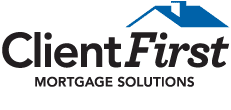When you apply for a mortgage, lenders (financial institutions) may offer you options with either FIXED or VARIABLE interest rates. Some lenders also offer a ‘hybrid’ option that combines fixed and variable portions in the same mortgage. (Remember the interest rate options are a separate decision from the mortgage type, OPEN or CLOSED.)
What is a FIXED interest rate mortgage?
- You will know in advance the amount of interest you will have to pay.
- The interest rate is set or ‘fixed’ when you apply for a mortgage. This interest rate remains the same for the entire term.
- The amount of your regular mortgage payments is also fixed.
What is a VARIABLE interest rate mortgage?
- The interest rate can increase or decrease during the term. The interest rate varies with changes in market interest rates.
- How changes in the interest rate affect your payments, will depend on whether your payments are fixed or adjustable.
FIXED PAYMENTS
- You pay one set amount with each payment.
- If the interest rate goes down, more of the payment applies to the principal and you will pay off your mortgage faster.
- If the interest rate goes up, more of the payment applies to interest, and less to the principal. Your lender may require you to increase your payments so that your mortgage will be paid off within the amortization period you had originally agreed to.
Note: With fixed payments, for example TD Canada, you don’t know in advance how much of the principal will be paid off at the end of the term.
ADJUSTABLE PAYMENTS
- Your payment amount changes if the interest rate changes. A set amount of each payment is applied to the principal, and the interest portion fluctuates depending on changes to the interest rate.
- If the interest rate goes down, your payments will decrease.
- If the interest rate rises, your payments also increase. This can make it more difficult to plan your mortgage payments over the term of the agreement, so you need to be sure you can adjust your budget to make higher payments.
Note: With adjustable payments, the amortization period stays the same. You can tell in advance how much of the mortgage will be paid off at the end of the term, because you pay whatever amount is needed to add up tot he agreed amount.
What is a HYBRID mortgage?
- Some lenders, for example Scotiabank, offer a hybrid or combination mortgage – part of the mortgage is financed at a fixed rate and part is financed at a variable rate.
- The fixed portion gives you partial protection in case interest rates go up, and the variable portion provides partial benefits if rates fall.
- The portions may have different terms. For example, a hybrid mortgage may include a 2 year term for the FIXED portion and the 5 year term for the VARIABLE portion.
- Hybrid mortgages that include portions with different terms may be difficult to transfer to another lender.
The interest rates on variable rate mortgages are often lower than on fixed interest rate mortgages with at the same term length when you sign your mortgage agreement. This may make a variable interest rate mortgage, attractive in the short term.
However, whether you are better off with a variable interest rate mortgage compared to a fixed interest rate mortgage depends on whether the market interest rates go up or down during your term. This movement is difficult to predict. it is therefore always better to make use of a mortgage broker when making these decisions.
Source: www.canada.ca


